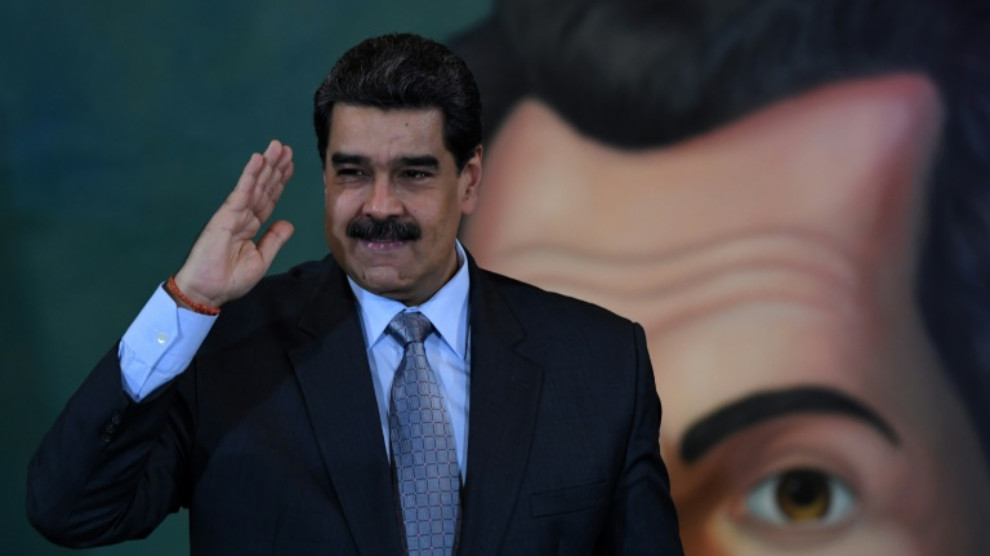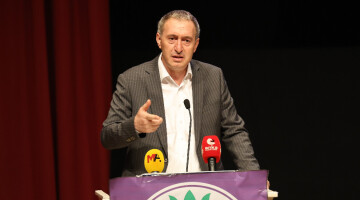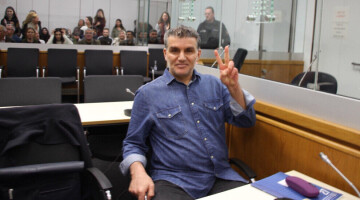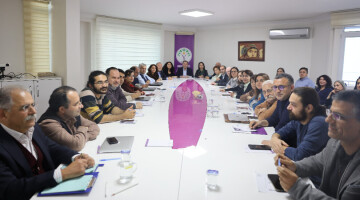Venezuela's president and top ministers are responsible for probable crimes against humanity including extrajudicial killings and the systematic use of torture, UN investigators said on Wednesday.
In their first report, a team of investigators tasked with probing a slew of alleged violations in Venezuela said they had found evidence that state actors, including President Nicolas Maduro, were behind serious international crimes.
The International Fact-Finding Mission, created by the UN Human Rights Council a year ago, "found reasonable grounds to believe that Venezuelan authorities and security forces have since 2014 planned and executed serious human rights violations," Marta Valinas, the mission's chairperson, said in a statement.
Some of those violations, "including arbitrary killings and the systematic use of torture, amount to crimes against humanity," she said.
"Far from being isolated acts, these crimes were coordinated and committed pursuant to state policies, with the knowledge or direct support of commanding officers and senior government officials."
The 411-page report spelled out which Venezuelan officials it deemed responsible, citing "reasonable grounds to believe that both the President and the Ministers of People's Power for Interior Relations, Justice and Peace, and for Defence, ordered or contributed to the commission of the crimes documented in this report."
International 'legal action'
The investigators demanded that Venezuelan authorities immediately carry out "independent, impartial and transparent investigations" into the violations, and ensure victims receive "full redress".
Other jurisdictions, including the International Criminal Court, "should also consider legal actions against individuals responsible for violations and crimes the mission identified," Valinas said.
The three-person team was unable to visit Venezuela, but based their findings on 274 remote interviews with victims, witnesses, former state officials and others, and analysis of confidential documents, including legal case files.
Maduro faces mounting pressure from world powers who accuse him of violently cracking down on dissent over Venezuela's economic collapse and on opponents in a harsh political stand-off in recent years.
Wednesday's report decried a vast array of abuses committed amid a gradual breakdown of democratic institutions and the rule of law in the country.
They highlighted soaring numbers of extrajudicial killings in Venezuela, lamenting that the vast majority of such killings by security forces had resulted in no prosecutions.
The mission reviewed over 2,500 incidents since 2014 that led to more than 5,000 killings by security forces, many of them arbitrary.
And it probed 140 so-called Operations for People's Liberation, established purportedly to fight crime, but which between 2015 and 2017 resulted in 413 people being killed, shot "sometimes at point blank range".
The report pointed out that government officials had repeatedly praised such operations.
'Systematic' torture
"These extrajudicial executions cannot be attributed to a lack of discipline among the security forces," Valinas said, pointing out that "high-ranking officials had effective command and control over the perpetrators and knowledge of their actions but failed to prevent or repress the violations.
"The killings appear part of a policy to eliminate unwanted members of society under the cover of combatting crime."
The investigators called for the dismantlement of Venezuela's Special Action Forces, which along with the national police agency was responsible for well over half of the killings.
The investigators also decried the "systematic practice of torture" against people detained during anti-government protests, and against people accused of rebellion or coup attempts.
It pointed to techniques including rape, asphyxiation, beatings, electric shocks and death threats to extract confessions or as punishment.
At least three people had died after being subjected to torture while in the custody of Venezuela's military counter-intelligence directorate and its national intelligence service, the report found.
Investigator Francisco Cox stressed in a statement that commanding officers and high-level officials "had full knowledge of this pattern of crimes," adding that the investigators had drawn up a list of 45 officials within the two agencies "who should be investigated and prosecuted".












